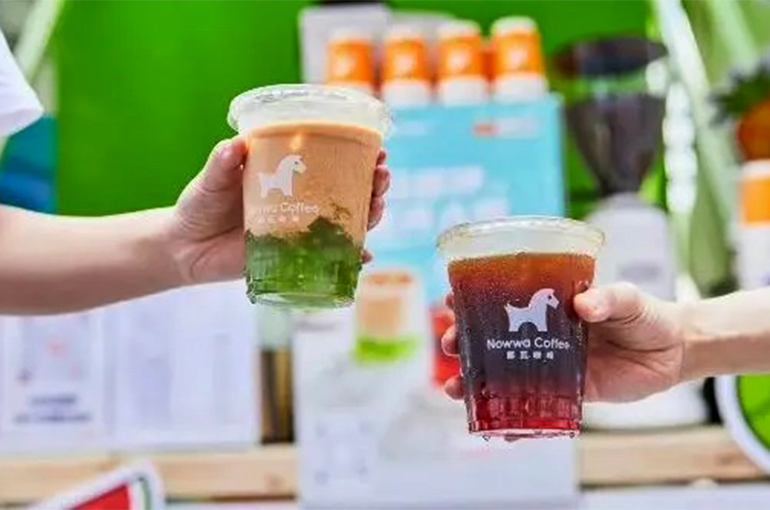 China's Nowwa Coffee to Soup Up SE Asian Expansion After Latest Fundraiser
China's Nowwa Coffee to Soup Up SE Asian Expansion After Latest Fundraiser(Yicai) Sept. 10 -- Nowwa Coffee, a Chinese coffee chain startup, said it will expand its presence in the Southeast Asian market after completing its latest financing round.
Nowwa Coffee bagged hundreds of millions of Chinese yuan, equivalent to tens of millions of US dollars, in a Series B++ fundraiser, the Shanghai-based company recently announced. The latest round was led by Ningbo Yongshan Investment, Peakview Capital, V Star Capital, and others, it added.
The proceeds will mainly go for supply chain upgrades, new factory construction, and product research and development, Nowwa Coffee noted, adding that it plans to build an innovative coffee industry park in Ningbo, integrating R&D, production, supply chain, and training.
Nowwa Coffee picked Southeast Asia as its first overseas market due to the region's significant potential, relatively less intense competition, and lower entry barriers, said Chief Executive Guo Xingjun. Differentiation is the key to the firm's globalization strategy, as it aims to meet the needs of local consumers, Guo added.
Nowwa Coffee had completed five financing rounds, with investors including GSR Ventures, SIG China, 37 Interactive Entertainment, and GurrySharK Capital.
Established in June 2019 as a freshly ground coffee brand, Nowwa Coffee gained popularity with consumers thanks to its low-calorie products, including the 0-fat Tongtong bucket coffee series and the lightweight coconut latte. It has shops in over 160 Chinese cities, with plans to expand in Thailand and Singapore, while its gross merchandise value nearly doubled last year.
More and more Chinese catering and beverage brands are turning to Southeast Asia because the domestic market is becoming saturated. Luckin Coffee plans to launch a large-scale overseas expansion from the next quarter to earlier next year, while BeanStar Coffee also plans to open stores in Indonesia and Thailand.
The Southeast Asian market, with a total population of about 670 million and a highly youthful demographic, is seeing rising purchasing power, analysts pointed out. However, it also brings challenges such as food regulation differences and halal certification, requiring a deep understanding of the local culture, consumer habits, and integration of brand values, they said.
Editor: Martin Kadiev